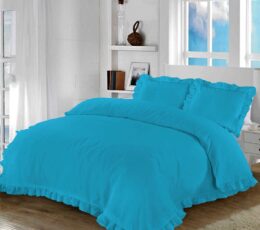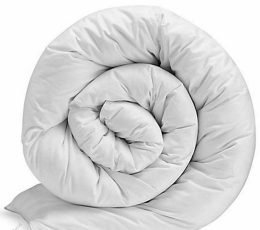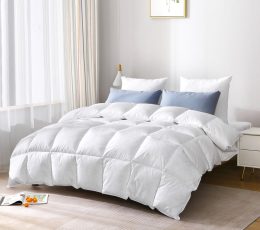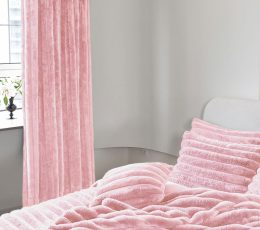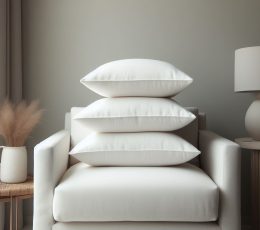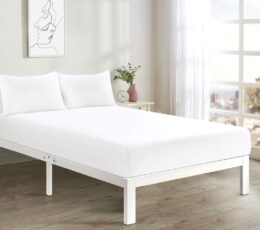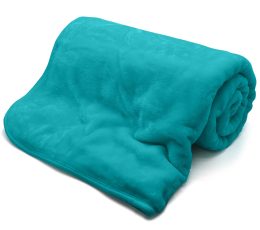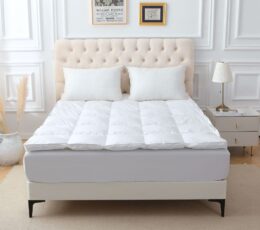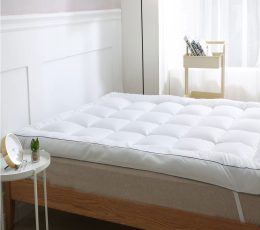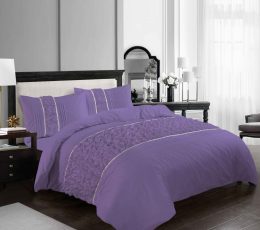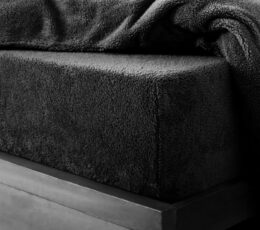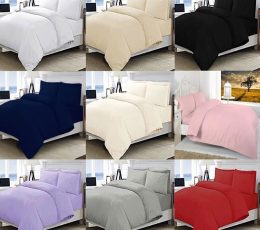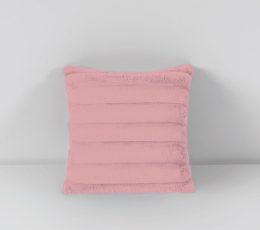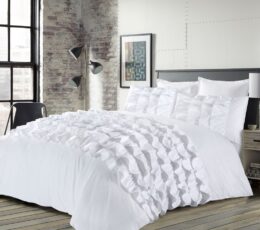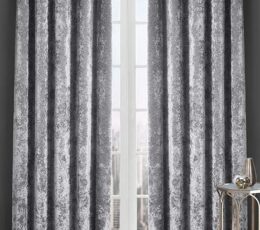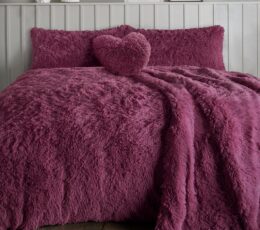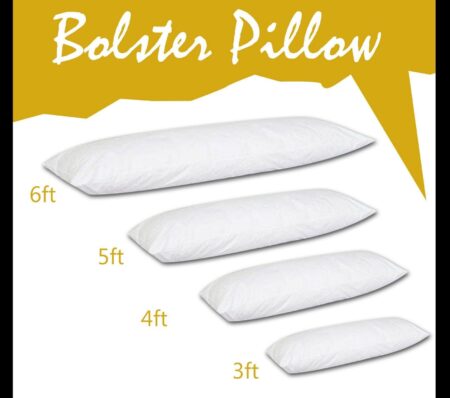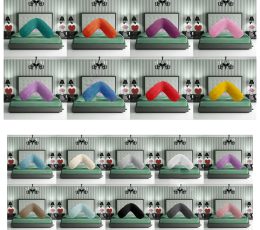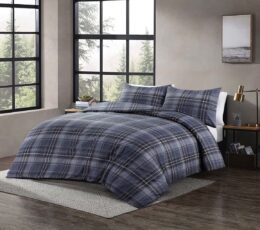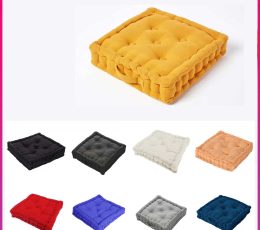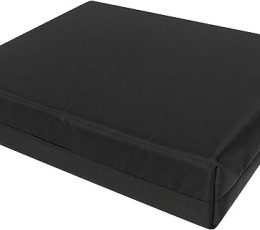There are many ways to make your bedding comfortable, like the hotel collection pillow, considered the most fluffy pillow for sleep. The best way to get sleep at the hotel is to get quality bedding that is as good as hotel bedding. The quality pillows make it easy to get the essential sleep routine and provide the best sleep you can ever get.
The pursuit of a good night’s sleep is a universal endeavor. It’s not just about the quantity of sleep one gets, but the quality. One often overlooked aspect of achieving this quality is choosing the right bedding, particularly the right pillow. When it comes to thickness, we mainly get confused about whether the thick pillow or thin pillow is the better choice for our bedding. Here, we will discuss which is the better choice of pillow for you to get the best sleep during the night. We Suggest to understand the best thickness of pillow before this dispute.

Why You Need a Good Night’s Sleep:
Quality sleep is crucial for overall well-being and health. During sleep, the body undergoes essential processes like tissue repair, muscle growth, and hormone regulation. Adequate rest improves cognitive function, mood, and immune system function. Conversely, lack of sleep or poor sleep quality can lead to a range of health issues, such as fatigue, impaired memory, weakened immunity, and even an increased risk of chronic diseases like obesity and diabetes. Therefore, investing in conducive sleeping conditions, including the right pillow, is essential for maximizing sleep quality.
How To Choose The Perfect PIllow:
Selecting the right bedding starts with understanding your individual sleep preferences, body type, and any specific health considerations. Factors to consider include mattress firmness, pillow type, and, of course, pillow thickness. We recommend to follow the pillow guide for selecting the perfect pillow.
Consider Sleep Position:
Different sleep positions require varying levels of pillow support. For instance, back sleepers typically benefit from thinner pillows that provide adequate neck support without tilting the head too far forward. Side sleepers often prefer thicker pillows to maintain proper spinal alignment and fill the gap between the ear and shoulder. On the other hand, stomach sleepers may opt for thinner pillows or even forego them altogether to prevent strain on the neck and spine.
Evaluate Neck Support:
The primary purpose of a pillow is to support the natural curvature of the spine, particularly the cervical spine or neck. A pillow that is too thick can cause the neck to bend unnaturally, leading to stiffness and discomfort. Conversely, a pillow that is too thin may not provide enough support, leading to strain on the neck muscles. The ideal pillow thickness should allow the head to rest in a neutral position, maintaining alignment with the spine.
Consider Personal Preference:
Ultimately, personal preference plays a significant role in pillow selection. Some individuals find thicker pillows more comfortable, while others prefer the gentle support of thinner pillows. Experimenting with different thicknesses and materials can help determine what works best for you. Additionally, factors such as allergies, material breathability, and temperature regulation may influence your choice of pillow. Make sure to invest in quality pillow because you don’t know how long does cheap pillows last.
How To Pick Your Pillow
Picking your pillows is one of the best ways to enjoy a sleeping experience that is more comfortable and enjoyable. Figuring out how often you should change your pillows is a key part of the process, which you will need to get right as much as possible. So many ideas play a part in allowing you to choose the right pillows, and this is something you need to plan and prepare for.
Picking essential pillows is a great way to provide a better and more comfortable bed and enhance your sleeping experience. This is something that can make a huge difference to the way your bed feels. This could come down to choosing single or double pillows and focusing on the most appealing and comfortable for your sleeping habits. Think about the best ways of achieving this, and come up with some brilliant ideas to help you focus on this.

Types Of Pillows
Pillows are not one-size-fits-all; they come in various shapes, sizes, and designs to cater to different needs and circumstances. Whether you’re seeking enhanced comfort, support during pregnancy, or relief from neck and back pain, there’s a pillow designed specifically for you. Let’s explore three types of pillows tailored to different circumstances: Featured, Maternity, and Orthopedic Pillows.
Featured Pillows:
Featured pillows are designed to offer enhanced comfort and support while addressing specific sleep preferences and needs. These pillows often incorporate innovative features and materials to optimize sleep quality. Here are some examples of featured pillows:
- Memory Foam Pillows: Memory foam pillow contour to the shape of your head and neck, providing personalized support and pressure relief. They are particularly beneficial for individuals with neck pain, stiffness, or other orthopedic issues.
- Cooling Pillows: Cooling pillow are crafted with breathable materials or infused with cooling gel to regulate body temperature and prevent overheating during sleep. They are ideal for hot sleepers or those living in warm climates.
- Adjustable Loft Pillows: These pillows feature removable inserts or layers that allow you to customize the pillow’s height and firmness according to your preferences. Adjustable loft pillows are versatile and suitable for various sleeping positions.
Maternity Pillows:
Maternity pillows, also known as pregnancy pillows, are specifically designed to support the changing bodies of pregnant women and alleviate discomfort during sleep. These pillows provide targeted support to the abdomen, back, hips, and knees. Here are some common types of maternity pillows:
- C-Shaped Pillows: C-shaped pillows wrap around the body, providing support to the head, neck, back, and legs simultaneously. They are versatile and can be used for different sleeping positions, relieving pregnancy-related discomfort.
- U-shaped pillows: U shaped pillow cradle the entire body from head to toe, offering full-body support and alleviating pressure on the hips and back. They are particularly beneficial for side sleepers and provide added comfort during pregnancy. After getting this pillow it essential to understand how to sleep with pregnancy pillow for avoiding any miscomfort.
- Wedge Pillows: Wedge pillows are triangular and can be placed under the abdomen or behind the back to provide targeted support and alleviate pressure on specific areas. They are compact and versatile, making them suitable for use during pregnancy and beyond. For people who are looking for the wedge pillow follow the guide of wedge pillow – the perfect sleeping partner guide.
Orthopedic Pillows:
Orthopedic pillows are designed to promote proper spinal alignment and alleviate neck and back pain. These pillows often feature contoured shapes and supportive materials to provide optimal comfort and support. Here are some examples of orthopedic pillows:
- Neck Pillows: Neck pillows cradle the neck and support the spine’s natural curvature, relieving neck pain and stiffness. They are often made with memory foam or latex for personalized support.
- Lumbar Pillows: Lumbar pillows support the lower back and help maintain proper posture while sitting or sleeping. They relieve discomfort and are ideal for individuals with back issues or those who spend long hours sitting.
- Cervical Pillows: Cervical pillows have a contoured design that provides targeted support to the neck and shoulders, reducing strain and tension. They are recommended for individuals with cervical spine problems or frequent neck pain.
How to Keep Your Pillows Soft & Fluffy:
Thick Pillow or Thin Pillow both are essential to a good night’s sleep, providing support and comfort to ensure you feel refreshed. However, pillows can become flat over time and lose their fluffiness, impacting their effectiveness and comfort. To maintain your pillows’ softness and fluffiness, follow these simple tips:
- Regular Fluffing: Fluff your pillows regularly to redistribute the filling and prevent clumping. Give your pillows a good shake and fluff them by hand to restore their loftiness.
- Air Out: Regularly air your pillows to prevent moisture buildup and odors. Hang your pillows outside on a sunny day, or place them near an open window to allow fresh air to circulate through the filling.
- Sun Dry: Sun drying your pillows can help eliminate moisture and bacteria, keeping them fresh and fluffy. Place your pillows in direct sunlight for a few hours, rotating them occasionally to ensure even drying.
- Gentle Washing: Follow the care instructions on the pillow’s label when washing them. Use a gentle detergent and wash your pillows in cold water on a gentle cycle to avoid damaging the filling. Additionally, adding a couple of tennis balls to the dryer can help fluff the pillows as they tumble dry.
- Dry Thoroughly: Ensure your pillows are completely dry before reusing them to prevent mold and mildew growth. Use a low heat setting in the dryer and add dryer balls or clean tennis balls to help fluff up the pillows as they dry.
- Pillow Protectors: Invest in pillow protectors to shield your pillows from spills, stains, and allergens. Pillow protectors act as a barrier against moisture and dirt, prolonging the lifespan of your pillows and keeping them clean and fluffy.
Following these simple steps, you can keep your pillows soft and fluffy longer, ensuring a comfortable and restful sleep experience every night. For in depth, checkout our guide on how to choose the best comfort pillow to make your sleep break free.

Hotel Quality Pillows
Hotel-quality pillows are renowned for their luxurious feel and superior comfort, providing guests with a restful night’s sleep. These Thick Pillow or Thin Pillow are designed to meet the high standards of quality and durability demanded by the hospitality industry. Here are some features of hotel-quality pillows:
- High-Quality Materials: Hotel pillows are typically crafted from premium materials such as down, feathers, or high-density memory foam. These materials offer exceptional comfort and support, ensuring a restful sleep experience.
- Plush Filling: Hotel pillows are filled with a generous amount of filling to provide optimal loftiness and support. Whether you prefer a soft and fluffy pillow or a firm and supportive one, hotel-quality pillows come in various options to suit your preferences. Follow the guide for choosing the right cushion fillings.
- Hypoallergenic Properties: Many hotel pillows are hypoallergenic, making them ideal for individuals with allergies or sensitivities. These pillows are treated to resist dust mites, mold, and mildew, ensuring a clean and hygienic sleep environment.
- Durable Construction: Hotel pillows are built to withstand frequent use and washing, maintaining their shape and support over time. Reinforced stitching and high-quality materials ensure these pillows retain plushness and comfort, even after repeated use.
- Luxurious Feel: Hotel pillows are designed to provide a luxurious sleep experience, replicating the comfort and elegance of a five-star hotel. From silky-smooth pillowcases to plush filling, these pillows offer a touch of luxury that enhances your overall sleep quality.
For this, we can understand about how to choose between Thick Pillow or Thin Pillow that make your room bedding into the hotel quality bedding. If your still want to go in depth we recommend to go with our guide on what pillows do hotels use for better understading about this quality of the pillow.
FAQs
What factors should I consider when deciding between a thicker or thinner pillow?
Factors to consider include your sleep position (back, side, or stomach), neck support needs, personal comfort preferences, and specific health considerations such as neck pain or spinal issues.
Is there a specific pillow thickness that is universally better for everyone?
No, the ideal pillow thickness varies from person to person based on individual sleep preferences and needs. What works best for one person may not be suitable for another.
How does pillow thickness affect sleep quality?
Pillow thickness can impact sleep quality by affecting spinal alignment and neck support. A pillow that is too thick or too thin may cause discomfort, leading to tossing and turning throughout the night and potentially disrupting sleep.
I have neck pain. Should I choose a thicker or thinner pillow?
Individuals with neck pain may benefit from a pillow that provides adequate support and promotes proper spinal alignment. Depending on the cause of the neck pain, some individuals may find relief with a thicker pillow, while others may prefer a thinner pillow. Experimenting with different pillow thicknesses is essential to find what works best.
I sleep on my side. Should I use a thicker or thinner pillow?
Side sleepers often benefit from thicker pillows that help fill the gap between the head and shoulders, maintaining proper spinal alignment. Thinner pillows may not provide enough support for side sleepers, leading to strain on the neck and shoulders.
Can pillow thickness affect snoring or sleep apnea?
Yes, pillow thickness can impact snoring and sleep apnea by affecting airflow and neck positioning. Thicker pillows may tilt the head backward, exacerbating snoring and sleep apnea symptoms. Thinner pillows that promote proper neck alignment may help reduce snoring and improve breathing during sleep.
How do I determine the right pillow thickness for me?
Experiment with different pillow thicknesses to find the one that offers optimal comfort and support for your sleep position and individual preferences. Pay attention to how your neck and spine feel in the morning after using different pillows to gauge their effectiveness.
Are there any specific pillow types or materials I should consider for better sleep quality?
Memory foam pillows, adjustable loft pillows, and contour pillows are popular options that offer customizable support and comfort. Additionally, pillows with breathable materials or cooling gel inserts can help regulate temperature and prevent overheating during sleep.
Can I use a combination of thicker and thinner pillows for better sleep quality?
Some individuals find that using a combination of pillows with varying thicknesses provides optimal support and comfort. For example, you may use a thicker pillow for side sleeping and a thinner pillow for back sleeping to maintain proper spinal alignment in different sleep positions.
How often should I replace my pillows?
It’s recommended to replace pillows every 1-2 years, depending on their condition and quality. Over time, pillows can lose shape and support, impacting sleep quality and hygiene. Regularly inspect your pillows for signs of wear and tear, and replace them as needed to ensure optimal sleep comfort and support.
There is no one-size-fits-all answer in the debate between thick pillow or thin pillow. The best pillow thickness depends on your sleep position, neck support needs, and personal comfort preferences. Experimenting with different thicknesses and materials is key to finding the perfect pillow that promotes restful sleep and optimal spinal alignment. Remember, investing in a quality pillow is investing in your overall health and well-being, so choose wisely for a good night’s sleep every night. Whenever you want a new pillow, follow this guide to get the best option for pillows.




